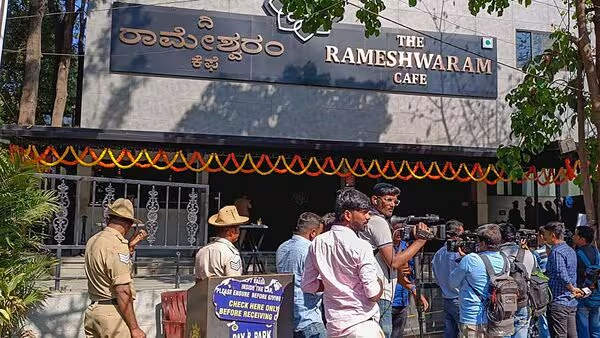
Bengaluru: The National Investigation Agency (NIA) has uncovered connections between the suspects involved in the Rameshwaram Cafe blast in Bengaluru and Pakistan, as well as the global terrorist organization ISIS. Sources revealed on Friday that the investigation indicated that jailed terror suspects received directives from Pakistan to execute subversive acts in India.
The key suspect in the cafe blast is reportedly still at large and is believed to be in Pakistan. The NIA’s investigation identified a group of six individuals linked to the blast, with four of them having received bomb-making training from ISIS. This training was conducted online and completed in just one week.
The accused purchased materials online to create the explosives used in the cafe and near the BJP headquarters, with timers set for 90 minutes. Abdul Mateen Taha, one of the suspects from Thirthahalli in Shivamogga district, moved to Bengaluru in 2012 for engineering studies but dropped out. He became radicalized through the internet and established connections with jihadist ideologies.
Taha was linked to Shoaib Ahmed Mirza, who had been convicted in a 2012 targeted killing case. After Mirza’s release in 2017, Taha expressed his desire to join ISIS. He reportedly contacted another jailed suspect, Faizal (also known as Mohammad Shahid Faizal), via the dark web and became involved with Al Hind Trust, an organization aimed at radicalizing youth.
Taha and his friend Hussain Shazib actively recruited for Al Hind Trust. Following a case against the organization in 2020, they left Bengaluru. They initially planned to detonate bombs near BJP offices in Malleshwaram on January 22, 2024, coinciding with the Ram Mandir inauguration, but their plan was thwarted due to heavy police presence. One bomb planted at the BJP office failed to detonate and was not discovered.
After unsuccessful attempts at other locations, the suspects targeted the popular cafe. CCTV footage captured Shazib entering the cafe on February 29 with a bag containing an IED set to explode 90 minutes later. The bomb detonated on March 1, injuring several people.
On September 9, the NIA filed charges against four individuals in connection with the blast. The accused—Mussavir Hussain Shazib, Abdul Matheen Ahmed Taaha, Maaz Muneer Ahmed, and Muzammil Shareef—face multiple charges under the IPC, the Unlawful Activities (Prevention) Act, the Explosive Substances Act, and the Prevention of Damage to Public Property Act.
The NIA’s chargesheet noted that Taha and Shazib received funding from their handler via cryptocurrencies, which were converted through Faisal using various Telegram platforms. These funds were intended to finance acts of violence in Bengaluru. All four suspects have been arrested and are currently in judicial custody following the cafe blast, which injured nine people and caused significant damage to the establishment.
